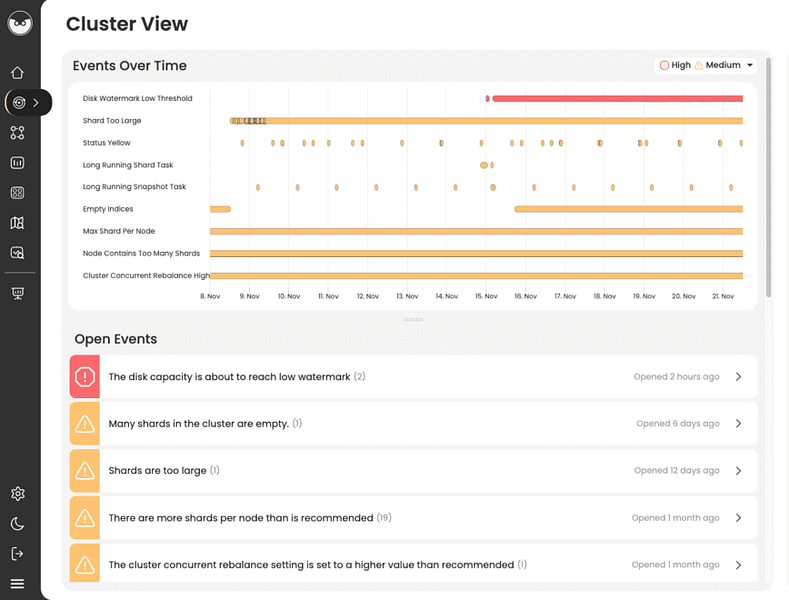Opster Team
Last updated: Nov 7, 2022
| 1 min readIn addition to reading this guide, we recommend you run the Elasticsearch Health Check-Up. It will detect issues and improve your Elasticsearch performance by analyzing your shard sizes, threadpools, memory, snapshots, disk watermarks and more.The Elasticsearch Check-Up is free and requires no installation.
To manage all aspects of your OpenSearch operation, you can use Opster’s Management Console (OMC). The OMC makes it easy to orchestrate and manage OpenSearch in any environment. Using the OMC you can deploy multiple clusters, configure node roles, scale cluster resources, manage certificates and more – all from a single interface, for free. Check it out here.
Overview
The queue term in OpenSearch is used in the context of thread pools. Each node of the OpenSearch cluster holds various thread pools to manage the memory consumption on that node for different types of requests. The queues come up with initial default limits as per node size but can be modified dynamically using _settings REST endpoint.
What it is used for
Queues are used to hold the pending requests for the corresponding thread pool instead of requests being rejected. For example, if there are too many search requests coming on the node which can not be processed at the same time, the requests are sent to the search thread pool queue.
Examples
Monitoring the thread pools using _cat API:
GET /_cat/thread_pool?v
Get details about each thread pool, including current size:
GET /_nodes/thread_pool
Notes
- Thread pool queues are one of the most important stats to monitor in OpenSearch as they have a direct impact on the cluster performance and may halt the indexing and search requests.
- The specific thread pool queue size can be changed using its type-specific parameters.
- It is not possible to update the thread pool settings dynamically via the cluster setting API. Rather, it is a node level setting and it must be configured inside OpenSearch.yml on each node and a node restart is required after the updates.
Common problems
- The most common problem that arises in OpenSearch related to queues is EsRejectedExecutionException that occurs when queues are full and OpenSearch nodes cannot keep up with the speed of the requests. This may lead to nodes not responding as well. To deal with this issue, thread pools need continuous monitoring and based on thread pool queue utilization, you may need to review and control the indexing/search requests or increase the resources of the cluster.
- In case of bulk indexing queue rejection, increasing the size of the queue may cause the node to keep more data in memory, which may cause requests taking longer to complete and more heap space to be consumed. As a result you may face impact on cluster performance and stability.
Find & fix Elasticsearch problems
Opster AutoOps diagnoses & fixes issues in Elasticsearch based on analyzing hundreds of metrics.
Fix Your Cluster IssuesConnect in under 2 minutes

Arpit Ghiya
Senior Lead SRE at Coupa





